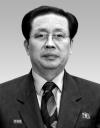UPDATE: The South Korean government is showing no eagerness to resume tours to Kumgnagsan. Its list of conditions for doing so are listed below in the original post. The last item in the list (The DPRK needs to provide more transparency about how it spends the money it receives from the Kumgang resort) seems to be the most important to the South Korean government at this point. According to the Joong Ang Daily:
While it appears intent on improving inter-Korean ties at Kaesong, Seoul is in no hurry to resume suspended tourism to the North’s Mount Kumgang. The South Korean government for the first time tied the Mount Kumgang tours to international sanctions, saying providing cash payments for the program would run counter to an existing United Nations Security Council resolution.
Speaking to reporters late Wednesday, a high-ranking Unification Ministry official said Seoul was reviewing the possibility of replacing cash with goods to pay North Korea for tours to Kumgang. “The issue of compensating the North for the tourism is related to UN Security Council Resolution 1874,” the official said.
He was referring to the resolution adopted in June, following North Korea’s second nuclear test in late May. The resolution states that member states must not provide financial assistance to North Korea, except for “humanitarian and developmental purposes directly addressing civilian needs.” The resolution also says that UN members must not provide “public financial support” for North Korea where such aid “could contribute to the country’s nuclear-related or ballistic missile-related or other [weapons of mass destruction]-related programs or activities.”
The Kumgang tours have been suspended since July of last year after a female South Korean tourist was fatally shot by a North Korean soldier in a nearby restricted zone. Last week, the North sent a message through Hyundai Group, the South Korean operator of the tours, that it wanted to talk to the South about the resumption of the tours, but Seoul has been lukewarm to the overture. The Mount Kumgang tour had been regarded as a major cash cow for North Korea. Since it is difficult to verify the use of cash in the North, the question of the program’s possible violation of the resolution has been raised in the past.
When the North made the proposal through Hyundai, one government official said he was “none too pleased” with the North because it could have sent its message through official channels.
I expressed some skepticism for “alternative payment mechanisms” below.
ORIGINAL POST: The South Korean government does not plan to allow South Korean tourists to return to Mt. Kumgang until the DPRK:
1. Cooperates in an investigation of the shooting of a South Korean tourist last year.
2. Implements measures to prevent a recurrence.
3. Guarantees tourist safety.
Recently, however, the South Korean government added another item to the list:
4. The DPRK needs to provide more transparency about how it spends the money it receives from the Kumgang resort.
According to the Hankyoreh:
The government’s attitude is in line with a statement given by President Lee Myung-bak in an interview with European news channel EuroNews on July 7, in which he namely said that there are suspicions that the massive aid given to North Korea over the last decade had been used to develop nuclear weapons. A government official said they were unable to block all of the cash entering North Korea from tourists spending money at Mt. Kumgang, but the government has concluded that at least the tourism fees should be transparent. Up until the project was suspended last July, Hyundai Asan, the company that operates the Mt. Kumgang tourism project, had sent North Korea 30 dollars per person for same-day tours, 48 dollars for two-day, one-night tours and 80 dollars for three-day, two-night tours. In total, Hyundai Asan had given North Korea an estimated 15 million dollars per year.
How can they achieve “transparency”? The Hankyoreh reports on a couple of ideas:
1. Pay North Korea in goods such as grain or sugar.
2. Open up an escrow account for North Korea that would limit the DPRK government to transferring money only for the import of specific non-military-use items.
I am skeptical that these latter two ideas could accomplish their goal. If South Korea paid the DPRK in goods (food, fertilizer, equipment), these could simply be resold to China for cash–as previous aid has been.
If South Korea set up an escrow account for the North Korean government which would be restricted somehow, such as prohibitions on the purchase of dual-use technologies, (would I be too cynical to predict that funds in the account would be limited to purchases of goods made in South Korea?) not much changes from the example above–although now there is a greater opportunity for the DPRK to engage in strategic arbitrage. If I was the DPRK official in charge of the escrow account, I would look for price differences in commodities and capital between South Korea and China. When I saw a price differential, I would buy the cheap goods in South Korea using the escrow funds and sell them for a profit in China. This could potentially net the DPRK more money than the previous policy proposal, but it does bring the DPRK one step closer to trading futures contracts!
Even if the DPRK did not get into the arbitrage game, there is no getting around fungibility. For example, if the DPRK spent the entire escrow account on food, it could steer domestic resources towards more profitable exports and get the cash that way.
Either way, most of the money goes where the leadership wants it to go.

 Jang Song-taek, Kim Jong il’s brother in law, and his senior aid were promoted to the DPRK’s top governing body the National Defense Commission
Jang Song-taek, Kim Jong il’s brother in law, and his senior aid were promoted to the DPRK’s top governing body the National Defense Commission